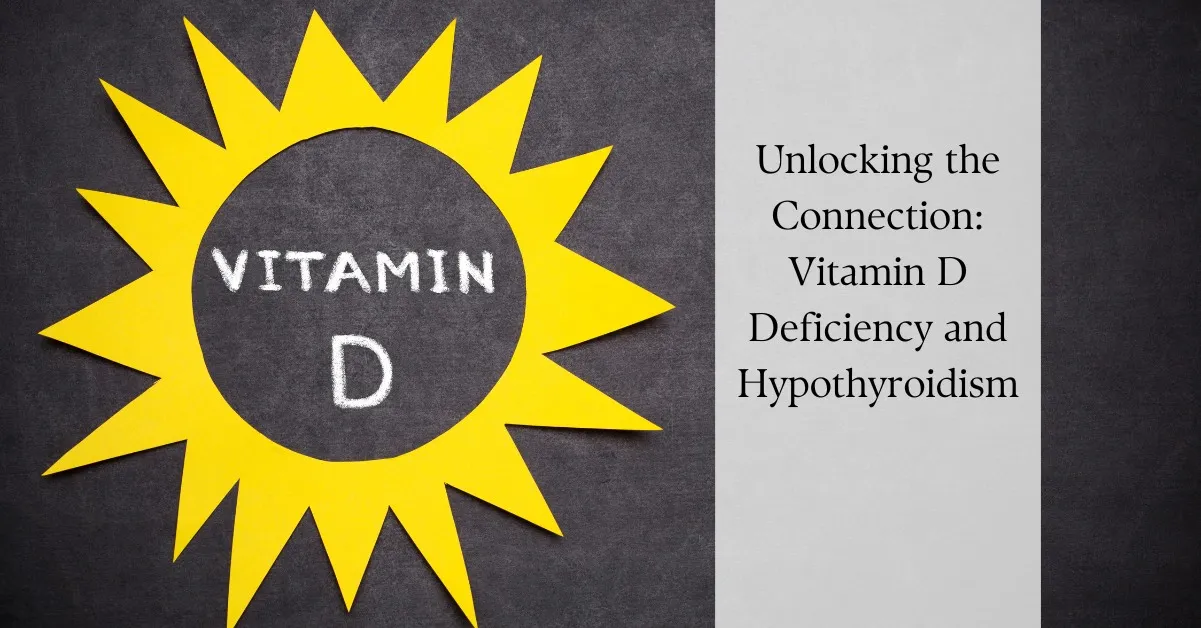Signs Of Hypothyroidism: Increasing evidence suggests that low vitamin D may play a role in thyroid disorders. For instance, research has suggested a possible link between vitamin D deficiency and autoimmune thyroid disorders, the most common cause of hypothyroidism (underactive thyroid).
- What is Vitamin D?
- Importance of Vitamin D for Overall Health
- Vitamin D and Signs of Hypothyroidism - Symptoms of Vitamin D Deficiency in Hypothyroidism
- Vitamin D: Sources
- Signs of Hypothyroidism: Better food sources of vitamin D:
- Recommendations for Deficiency Of Vitamin D - Vitamin D and thyroid health
- Should everyone be taking vitamin D supplements?
- Sources & Credits - Signs of Hypothyroidism:
People with hypothyroidism who took extra vitamin D supplements for 12 weeks had improvements in blood levels of thyroid-stimulating hormone.
What is Vitamin D?
The body can make its vitamin D from sunlight. However, adequate vitamin D can also be obtained from supplements; a small amount comes from a few foods. The body must change Vitamin D many times before it can be used. V
Importance of Vitamin D for Overall Health
The following table provides a rough range for low, normal, and high vitamin D levels for the average adult in nmol/ml and ng/ml.
| Level | Blood test result |
| Low | 30 nmol/l or 12 ng/ml or below |
| Adequate | 50 nmol/l or 20 ng/ml or above |
| High | 125 nmol/l or 50 ng/ml or above |
Vitamin D and Signs of Hypothyroidism – Symptoms of Vitamin D Deficiency in Hypothyroidism
Signs of Hypothyroidism: Vitamin D deficiency and hypothyroidism often present overlapping symptoms, making it crucial to understand how they manifest together. Here are the common signs of hypothyroidism associated with Vitamin D deficiency in individuals with hypothyroidism:
1. Fatigue and Weakness
Both Vitamin D deficiency and hypothyroidism can lead to persistent fatigue and muscle weakness. This can affect daily activities and overall quality of life, exhausting even simple tasks.
2. Depression and Mood Swings
Vitamin D plays a role in brain health and mood regulation. A deficiency in this vitamin can exacerbate the depressive symptoms already common in hypothyroidism, leading to increased feelings of sadness, anxiety, and mood swings.
3. Bone Pain and Muscle Aches
Vitamin D is vital for bone health, and a deficiency can result in bone pain and muscle aches. This symptom is often mistaken for general joint pain, which is also a symptom of hypothyroidism, leading to a compounded effect.
4. Hair Loss
Hair loss is a common symptom of hypothyroidism. Vitamin D deficiency can also contribute to hair thinning and loss, making this issue more pronounced in those with low thyroid function.
5. Weight Gain
While hypothyroidism is known for causing weight gain, Vitamin D deficiency can also contribute to metabolic issues. This dual impact can make managing weight particularly challenging.
6. Cognitive Impairment
Cognitive issues such as brain fog, memory problems, and difficulty concentrating are common in hypothyroidism. Vitamin D deficiency can further impair cognitive functions, exacerbating these issues.
Understanding these symptoms and their interrelation is essential for effective diagnosis and treatment. If you suspect Vitamin D deficiency alongside hypothyroidism, consult your healthcare provider for appropriate testing and management. This holistic approach can significantly improve your quality of life.
Vitamin D: Sources
Diet is also an issue. Very few foods are natural sources of vitamin D, and although a variety of everyday foods are fortified with D, they provide relatively small amounts.
Signs of Hypothyroidism: Better food sources of vitamin D:
- Cod liver oil (1 tablespoon): 1,360 IU
- Swordfish (3 ounces, cooked): 566 IU
- Salmon (3 ounces, cooked): 447 IU
- Tuna fish (3 ounces water-packed): 154 IU
- Orange juice, fortified (1 cup): 137 IU
- Nonfat milk, fortified (1 cup): 115 to 124 IU
- Yogurt, fortified (6 ounces): 80 IU
- Beef liver (3 ounces, cooked): 42 IU
- Egg (1 large): 41 IU
Recommendations for Deficiency Of Vitamin D – Vitamin D and thyroid health
More research must be done before the medical community establishes specific guidelines for using vitamin D to prevent or treat thyroid disease. However, given the growing understanding that vitamin D is vital to overall health, it’s worth ensuring you get enough of it.
You might even want to talk to your doctor about testing you for a deficiency, especially if you have a thyroid condition or are at risk for one.
Does Vitamin D Or Its Deficiency Have A Role In Developing Thyroid Diseases?
Signs of Hypothyroidism: Some, but not all, observational studies have found low blood levels of vitamin D in patients with hypothyroidism (underactive thyroid) as well as hyperthyroidism (an overactive thyroid) due to Gravesʼ disease.
 These studies do not clarify whether low vitamin D is a cause or a consequence of an innocent bystander’s development of these common thyroid conditions.
These studies do not clarify whether low vitamin D is a cause or a consequence of an innocent bystander’s development of these common thyroid conditions.
Low vitamin D may permit the underperforming immune system to facilitate the progression of thyroid disease.
Thyroid nodule symptoms
Equally, it is also possible that people with thyroid diseases may have altered health or lifestyles that lead to a low vitamin D state. For example, patients with an overactive thyroid due to Gravesʼ disease may increase the breakdown of vitamin D into inactive products, whereas those with an underactive thyroid may spend less time outdoors due to tiredness and thus have reduced sun exposure.
Should everyone be taking vitamin D supplements?
- Most people’s skin produces vitamin D in the summer, but around a fifth of the population is still deficient.
- The situation is likely to be worse over winter.
- As it is not routinely possible to identify these individuals without a blood test, Public Health England recommends that everyone over one-year-old take a low dose of vitamin D (10 mcg or 400IU), particularly in the winter months.
- The current advice during the COVID-19 pandemic is to consider taking a daily supplement and eating foods rich in vitamin D. This advice has been given to promote good bone and muscle health, especially for people spending more time indoors than average.
- The advice to take vitamin D supplements is not given to prevent nor treat Covid-19 as a rapid review undertaken by the National Institute for Health and Care Excellence (NICE) found no evidence to support claims of this.
Following appropriate testing and clinical management, people with vitamin D deficiency may also be prescribed higher therapeutic doses.
Sources & Credits – Signs of Hypothyroidism:
https://www.btf-thyroid.org/vitamin-d-and-thyroid-disease
https://www.verywellhealth.com/why-is-vitamin-d-so-important-to-thyroid-patients-3232755
https://www.healthline.com/nutrition/vitamin-d-deficiency-symptoms#symptoms
Struggling with Weight Gain or Loss? Could It Be Your Thyroid?
Understanding and addressing thyroid health is crucial for achieving and maintaining a balanced weight.
Click HereFeeling Tired All the Time? Your Thyroid Might Be to Blame
Recognizing that fatigue often stems from unnoticed thyroid issues, we empower individuals to take charge of their health.
Click Here

Symptoms of Vitamin D deficiency can be subtle but may include fatigue, mood changes, and muscle weakness. Regular sunlight, fortified foods, and supplements can help increase your levels. Thanks for sharing.
I was skeptical at first, but yoga has transformed my life with arthritis
Thyroid health is closely linked to our overall well-being, and addressing any potential vitamin deficiencies can play a crucial role in maintaining optimal thyroid function
O.K
Learning about the link between thyroid health and vitamin deficiency is eye-opening! It’s so important to take a holistic approach to our well-being and pay attention to these vital connections.
Nice post. Thanks